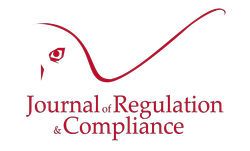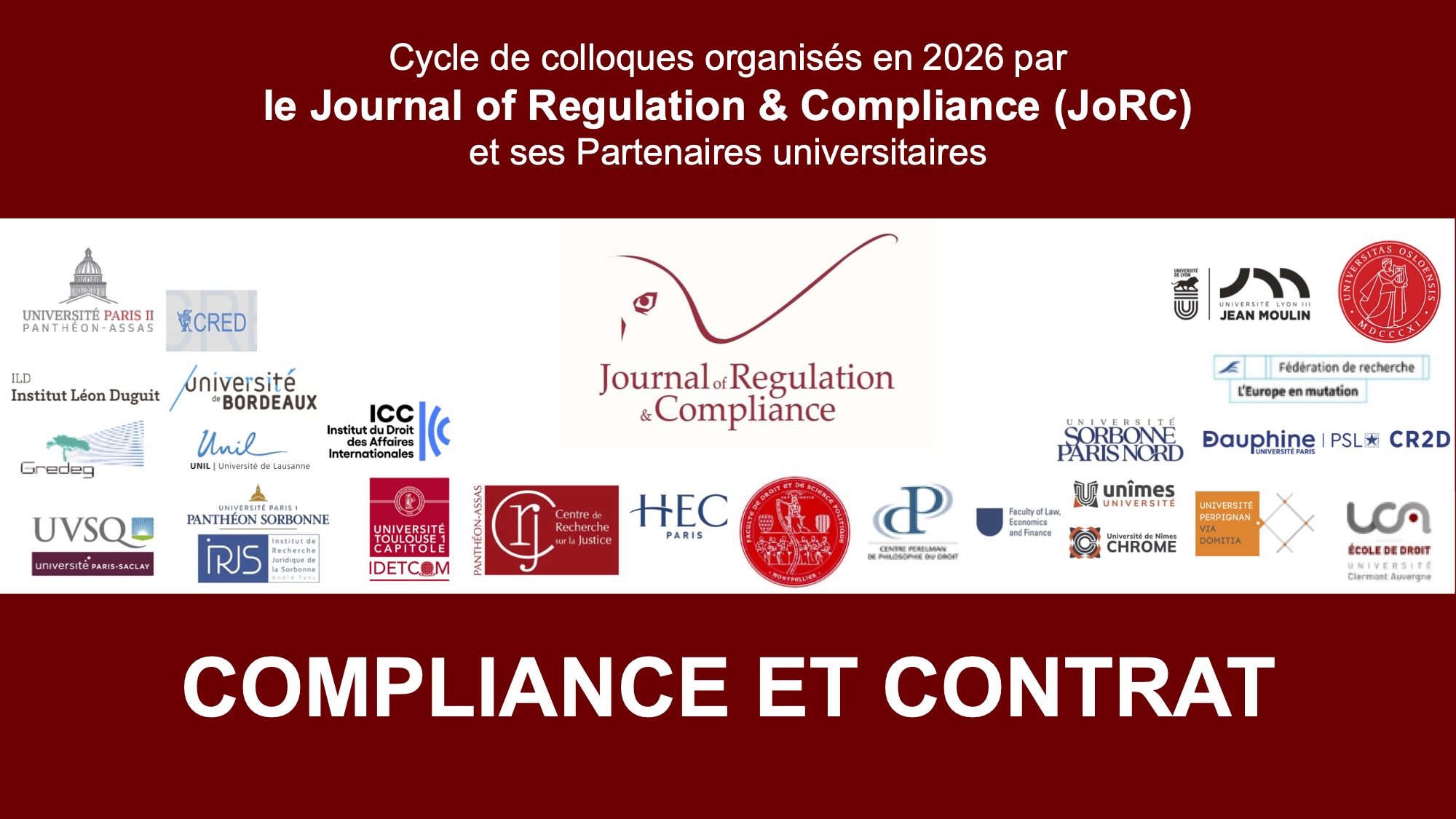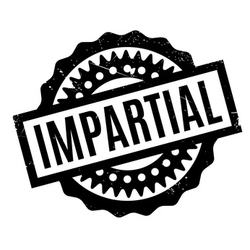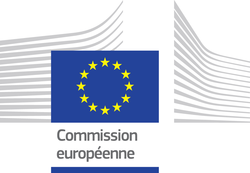Food for thoughts
Thesaurus : Doctrine
Référence complète : Gibert, M., Faire la morale aux robots. Une introduction à l'éthique des algorithmes, Flammarion, 2021, 168 p.
Compliance and Regulation Law bilingual Dictionnary

The telecommunications sector was the first sector to be liberalized in Europe, not so much by political will but because technological progress had in fact already brought competition into the sector and it was better to organize it rather than to To allow competition to settle in disorder.
Compliance and Regulation Law bilingual Dictionnary

First of all, the Regulation and Compliance Law is difficult to understand in others languages than English, through translation, for example in French. This corpus of rules and institutions suffers from ambiguity and confusion because of its vocabulary of Anglophone origin, in which words or expressions that are similar or identical have not the same meaning in English and, for example, in French..
To every lord all honor, this is the case for the term "Regulation".
In English, "regulation" refers to the phenomenon which the French language expresses by the term "Régulation". But it can also aim at the complete fitting of what will hold a sector reaching a market failure and in which regulation is only one tool among others. The expression "regulatory system" will be used with precision, but also the term "Regulation", the use of the capital letter indicating the difference between the simple administrative power to take texts ("regulation") and the entire system which supports the sector ("Regulation"). It is inevitable that in a quick reading, or even by the play of digital, which overwrites the capital letters, and the automatic translations, this distinction of formulation, which stands for a lower / upper case, disappears. And confusion arises.
The consequences are considerable. It is notably because of this homonymy, that frequently in the French language one puts at the same level the Droit de la Régulation ("regulatory law, Regulation") and the réglementation (regulation). It will be based on such an association, of a tautological nature, to assert that "by nature" the Regulatory Law is "public law", since the author of the reglementation (regulation) is a person of public law, in particular the State or Independent administrative authorities such as Regulators. There remains the current and difficult justification for the considerable presence of contracts, arbitrators, etc. Except to criticize the very idea of Regulatory Law, because it would be the sign of a sort of victory of the private interests, since conceived by instruments of private law.
Thus two major disadvantages appear. First of all, it maintains in the Law of Regulation the summa divisio of Public and Private Law, which is no longer able to account for the evolution of Law in this field and leads observers, notably economists or international Institutions, to assert that the Common Law system would be more adapted today to the world economy notably because if it does indeed place administrative law, constitutional law, etc., it does not conceive them through the distinction Law Public / private law, as the Continental system of Civil Law continues to do.
Secondly, no doubt because this new Law draws on economic and financial theories that are mainly built in the United Kingdom and the United States, the habit is taken to no longer translate. In other languages, for example, texts written in French are phrases such as "le Régulateur doit être accountable".
It is inaccurate that the idea of accountability is reducible to the idea of "responsibility". The authors do not translate it, they do not recopy and insert it in texts written in French.
One passes from the "translation-treason" to the absence of translation, that is to say to the domination of the system of thought whose word is native, here the U.K. and the U.S.A.
One of the current major issues of this phenomenon is in the very term of "Compliance". The French term "conformité" does not translate it. To respect what compliance is, it is appropriate for the moment to recopy the word itself, so as not to denature the concept by a translation. The challenge is to find a francophone word that expresses this new idea, particularly with regard to legal systems that are not common law, so that their general framework remains.

Organization of scientific events

► Full reference : M.-A. Frison-Roche, Scientific coprdination and co-hosting of the colloquia series Compliance and Contract, organised on the initiative of the Journal of Regulation & Compliance (JoRC) and its academic partners
____

____
► The Symposium Series in a nutshell : As a direct continuation of the previous symposium series co-organised by the Journal of Regulation & Compliance and its partner universities on "Compliance Obligation", which served as the basis for the publication of the book 📘Compliance Obligation, The series, some elements of which began in 2024 and others are already present in this book, explored in depth the specific theme of the links between compliance law and contracts. Indeed, compliance law is often analysed as the construction of laws and regulations to achieve "📘 Monumental Goals " of a political nature desired by States and public authorities, to the achievement of which systemic economic operations contribute through 📘Compliance Tools that are now well documented. Contracts are still relatively little studied, or even developed, in compliance systems that are often perceived through the orders issued, the technologies put in place and the 📘sanctions to be avoided or endured. On the contrary, the future of compliance law, particularly in its European conception, which places human beings at the centre of concerns for the sustainability of systems and the use of contracts, is the new conception that we must adopt. Contracts then appear to be both the means by which the subject company fulfils its legal obligations, forges relationships with other actors and deploys the necessary innovations. Contract law is both used and renewed as a result. The series of symposiums will examine various aspects of this general issue. It will result in the publication of a 📘book Compliance and Contrat.
____
► Presentation of symposiums in development :
- 29 May 2026🧮THE JUDGE CONFRONTED WITH CONTRACTS OF COMPLIANCE AND COMPLIANCE CLAUSES: read the presentation
- 12 June 2026🧮THE "CONTRACT OF COMPLIANCE" : read the presentation
- 25 Septembre 2026🧮COMPLIANCE: CLAUSE BY CLAUSE: read the presentation
- October 2026🧮COMPLIANCE AND COMMON CONTRACT LAW : read the presentation
- September 2026🧮COMPLIANCE, VALUE CHAINS AND CONTRACT: read the presentation
- 2 November 2026 🧮COMPLIANCE AND THE STRATEGIC CONTRACTUAL ORGANISATION OF CHAINS VALUE BY ENTERPRISES: read the presentation
________
Teachings : Droit de la régulation bancaire et financière, semestre de printemps 2017-2018

Le plan est actualisé chaque semaine au fur et à mesure que les leçons se déroulent en amphi.
Il est disponible ci-dessous.
Retourner à la présentation générale du cours, tel qu'il était bâti et proposé en 2018.
Compliance and Regulation Law bilingual Dictionnary

But in globalized markets, operators have the tools to disobey and the asymmetry of information diminishes the power of control of the Regulators, which raises doubts as to the effectiveness of the legal constraint: it is not enough that the Law orders. In these circumstances, texts, regulators and judges must produce conditions that encourage agents to adopt behaviors that are consistent with the aims sought by the Regulators because the operators themselves have an interest in them.
Thus, whilst regulatory systems in any sector become increasingly repressive, even in liberal economies, it is not so much to punish the perpetrator but to incite others who are tempted to commit crimes, To abandon them. It is the system of exemplarity. This thought prior to Beccaria participates in the re-feoadization of the Law, demonstrated by Pierre Legendre, associated with the decline of the State and to which the Regulation fully participates. Judgeshave little inclination to handle repression in this way, which creates a clash between Criminal Law and Regulatory Law, which nevertheless puts repression at its center.
In the same way, Regulatory Systems must inject positive incentives, for example rewards for communication of information, which encourages delation, or incentives done by the regulator for the network manager make investments in the maintenance of it, against the immediate interest of its shareholder. Finally, all patent law and economics are now thought of as an incentive to inn/en/article/innovation/ovate. But, some incentives have proven perverse such as stock-options or bonuses. As a result, new texts seek to regulate these.
Teachings : Banking and Financial Regulatory Law, 2016

Le plan est actualisé chaque semaine au fur et à mesure que les leçons se déroulent en amphi.
Il est disponible ci-dessous.
Retourner à la présentation générale du cours.
(Avant le début des enseignements de Droit de la Régulation bancaire et financière, un aperçu du plan général du Cours avait été mis à disposition.)
Compliance and Regulation Law bilingual Dictionnary

It can not be defined as the absolute positive aptitude, namely the total absence of prejudice, the heroic aptitude for a person to totally ignore his or her personal opinions and personal history. This heroic virtue is nonsense because not only is it inaccurate, impossible but it is also not desirable because a person is not a machine. It must not be so because good justice is human justice. In this respect, impartiality refers to a philosophical conception of what is justice and what is Regulation, not machines, but systems that must keep the human person in their center (Sunstein).
Thus Impartiality is articulated with the subjective nature of the assessment not only inevitable but also desirable that the judge makes of situations. Because Law is reasonable, Impartiality is defined only negatively: the absence of bias.
Impartiality is defined first and foremost as a subjective and individual quality, namely, the prohibition on the person who makes a decision affecting the situation of others (as is the case of a judge) to a a personal interest in this situation. The constitutional prohibition of being "judge and party" is thus the expression of the principle of impartiality. This definition is in line with the otherwise general requirement of no conflict of interests.
Impartiality is defined secondly as an objective and individual quality, namely the prohibition for a person who has already known of the case to know again (because he or she has already had an opinion about it, this having constituted an objective pre-judgment).
Impartiality is defined thirdly as an objective and structural quality, which obliges the organ which takes judgments to "give to see" a structure that makes it fit for this impartiality, objective impartiality that third parties can see and which generates confidence in its ability to judge without bias. This theory of English origin has been taken up by European law in the interpretation given to the European Convention on Human Rights. The expression "apparent impartiality" has sometimes given rise to misunderstandings. Indeed, far from being less demanding (in that it is "only" to be satisfied with an appearance of impartiality and not of a true impartiality), it is rather a matter of demanding more, not only of a true impartiality, but also of an impartiality which can be seen by all. This leads in particular to the obligation of transparency, to which the institutions, notably the State, were not necessarily bound by the law.
For a long time the Regulator, in that it took the form of an Administrative Authority, was not considered a jurisdiction, it was long considered that it was not directly subject to this requirement. It is clear from the case law that the national courts now consider that the regulatory authorities are courts "in the European sense", which implies a fundamental procedural guarantee for the operators concerned
Compliance and Regulation Law bilingual Dictionnary

The United States established regulatory authorities at the end of the 19th century: starting from the principle of the market, they tempered it by setting up regulators, after noting market failures, for example in terms of transport, in the event of economically natural monopolies or essential facilities. The tradition of the European Union is the reverse since the States, in particular the French State, have considered that sectors of general interest, deemed unsuitable for the competitive pattern because not corresponding to the operational pattern of the meeting of supply and demand, and to serve the missions of public services, were to be held by the State, either directly by public establishments, or by public enterprises under the supervision of the ministries.
Evolution in Europe came from community Law. Indeed, after the Second World War, the idea was to build a market which was to be "common" to European countries so that they could no longer wage war on each other in the future. To achieve this goal, the borders between them were lifted thanks to the principles of free movement of people, goods and capital. In the same way, the defense by each of the States of its own national companies by State aid has been prohibited so that any company, even foreign, can enter its territory, so that a common internal market can be established. Finally, a competition Law was necessary to prohibit companies and States from hindering the free functioning of the market, which would have slowed down or even stopped the construction of this internal market, which was an essentially political goal of the Treaty of Rome.
To carry out this political goal, the European Commission and the Court of Justice of the European Union (CJEU, previously called the Court of Justice of the European Communities - CJEC - until the Treaty of Lisbon) have prohibited any behavior of agreement or of abuse of a dominant position, even on the part of public enterprises, as well as any state support (except in the event of a crisis). Likewise, in perfect political logic, but also in perfect contradiction with European national traditions, European texts, regulations or directives have liberalized previously monopolistic sectors, first of all telecommunications and then energy. This was the case for telecommunications with the 1993 directive, the 1996 directive for electricity and the 1998 directive for gas.
Because of the hierarchy of standards, the States, except to be sued before the Court of Justice by the European Commission in action for failure, were obliged to transpose by national laws these European texts. Thus, by force, community law, both through general competition Law, but above all to achieve its political goal of building a single and initially peaceful internal market, has triggered in Europe a system of economic regulation in all network industry sectors, a system which was nonetheless foreign to the culture of the Member States. This was not the case with banking and insurance regulations, sectors which have always been threatened by systemic risk, and as such have been regulated and supervised by national central banks for a very long time.
Community Law has for 30 years plunged into national Law while ignoring them, which could also be profitable, and on the basis of competition Law, the political dimension of the European project having been forgotten, no doubt over time as the War itself faded from people's minds.
The effects of globalization and the financial crisis have constituted a new turning point in Community Law which, since 2010, has been built no longer to modify national Laws - and destroy them in part - but to build a new Community Law which should neither to Competition Law nor to National Law: Community Regulation Law, which makes room for individual rights and attempts to build over time a system that is robust to crises. Thus, by texts of the European Union of 2014, both a Banking Union and a new Law on Market Abuse is being built, which aims to establish a common law for the integrity of financial markets.
One of the challenges is what could or should be reconciliation between the two Europe, an economic and still not very social Europe on the one hand and the Europe of Human Rights, which is based on the European Convention on Rights of Man. This is not on the agenda.
Thesaurus : Doctrine
Référence générale, Cohendet, M.-A. et Fleury, M., Droit constitutionnel et droit international de l'environnement, Revue française de droit constitutionnel , PUF, » 2020/2, n°122, p.271-297.
___
Résumé de l'article :
Teachings : Compliance Law

Sont ici répertoriés les sujets proposés chaque année,
- soit au titre du travail à faire en parallèle du cours, à remettre à la fin du semestre (le jour de l'examen étant la date limite de remise),
- soit les sujets à traiter sur table, sans documentation extérieure et sous surveillance le jour de l'examen final.
Retourner sur la description générale du Cours de Droit de la Compliance, comprenant notamment des fiches méthodologiques.
Compliance and Regulation Law bilingual Dictionnary

"Compliance" is the typical example of a translation problem.
Indeed and for example, the term "Compliance" is most often translated by the French term "Conformité". But to read the texts, notably in Financial Law, "Conformité" is aimed rather at professional obligations, mainly aimed at the ethics and conduct of market professionals, especially service providers of investment. It is both a clearer definition in its contours (and in this more certain) and less ambitious than that expressed by the "Compliance". It is therefore, for the moment, more prudent to retain, even in French, the expression "Compliance".
The definition of Compliance is both contentious and highly variable, since according to the authors, it goes solely from the professional obligations of financial market participants to the obligation to comply with laws and regulations. In this latter sense, that is, the general obligation that we all have to respect the Law. To admit that, Compliance would be Law itself.
Viewed from the point of view of Law, Compliance is a set of principles, rules, institutions and general or individual decisions, corpus of which the primary concern is efficiency, in space and in time. The purpose is to put into practice general interest goal targeted by these gathered techniques.
The list of these goals, whether negative ("fighting": corruption, terrorism, embezzlement of public funds, drug trafficking, trafficking in human beings, organ trafficking, trafficking in poisonous and contagious goods - medicines, financial products, etc.) or positive ("fighting for": access to essential goods for everyone, preservation of the environment, fundamental human rights, education, peace , transmission of the planet to future generations) shows that these are political goals.
These goals correspond to the political definition of the Regulatory Law.
These political goals require means which exceed the forces of the States, which are also confined within their borders.
These monumental goals have therefore been internalized by public authorities in global operators. The Compliance Law corresponds to a new structuring of these global operators. This explains why the new laws put in place not only objective but structural repressions, as in France the "Sapin 2 Law" (2016) or the "obligation of vigilance Law" (2017) .
This internationalization of the Regulatory Law in companies implies that the public authorities now supervise the latter, even if they do not belong to a supervised sector, or even to a regulated sector, but participate, for example, in international trade.
The Law of Compliance thus expresses a global political will relayed by this violent new Law, most often repressive, on companies.
But it can also express on the part of the operators, in particular the "crucial operators" a desire to have themselves concern for these monumental global goals, whether of a negative or a positive nature. This ethical dimension, expressed in particular by the Corporate Social Responsibility, is the continuation of the spirit of the public service and the concern for the general interest, raised world-wide.
Thesaurus : Doctrine
Compliance and Regulation Law bilingual Dictionnary

Legally, the State is a public law subject defined by territory, people and institutions. It acts in the international space and emits norms. Politically, it has the legitimacy required to express the will of the social body and to exercise the violence of which it deprives the other subjects of law. It is often recognizable by its power: its use of public force, its budgetary power, its jurisdictional power. These three powers, declining or being challenged by private, international and more satisfying mechanisms, some predicted the disappearance of the State, to deplore it or to dance on its corpse.
With such a background, in current theories of Regulation, primarily constructed by economic thought and at first sight one might say that the State is above all the enemy. And this for two main reasons. The first is theoretical and of a negative nature. The advocates of the theory of regulation deny the State the political qualities set out above. The State would not be a "person" but rather a group of individuals, civil servants, elected officials and other concrete human beings, expressing nothing but their particular interests, coming into conflict with other interests, and using their powers to serve the former rather than the latter as everyone else. The Regulation theory, adjoining the theory of the agency, is then aimed at controlling public agents and elected representatives in whom there is no reason to trust a priori.
The second reason is practical and positive. The State would not be a "person" but an organization. Here we find the same perspective as for the concept of enterprise, which classical lawyers conceive as a person or a group of people, while economists who conceive of the world through the market represent it as an organization. The state as an organization should be "efficient" or even "optimal". It is then the pragmatic function of the Regulation Law. When it is governed by traditional law, entangled by that it would be an almost religious illusions of the general interest, or even the social contract, it is suboptimal. The Regulation purpose is about making it more effective.
To this end, as an organization, the State is divided into independent regulatory agencies or independent administrative authorities that manage the subjects as close as possible, which is fortunate in reducing the asymmetry of information and in reviving trust in a direct link. The unitary, distant and arrogant State is abandoned for a flexible and pragmatic conception of a strategic state (without capital ...) that would finally have understood that it is an organization like any other ...
Competition law adopts this conception of the State, which it posed from the beginning that it was an economic operator like any other. This is how this conception which would be more "neutral" of the world is often presented.
Successive crises, whether sanitary or financial, have produced a pendulum effect.
Now, the notions of general interest or common goods are credited of an autonomous value, and the necessity of surpassing immediate interests and of finding persons to bear superior interests or to take charge of the interests of others, even a non-immediate one, emerged.
Thus, the State or the public authority, reappears in the globalization. The Compliance Law or the Corporal Social Responsibility of the crucial companies are converging towards a consideration of the State, which can not be reduced to a pure and simple organization receptacle of externalities.
Thesaurus : Doctrine
Référence : Beauvais, P., Méthode transactionnelle et justice pénale, in Gaudemet, A. (dir.), La compliance : un nouveau monde? Aspects d'une mutation du droit, coll. "Colloques", éd. Panthéon-Assas, Panthéon-Assas, 2016, pp. 79-90.
Voir la présentation générale de l'ouvrage dans lequel l'article a été publié.
Thesaurus : Doctrine

► Full Reference : E. Netter, "Les technologies de conformité pour satisfaire les exigences du droit de la compliance. Exemple du numérique" (Conformity technologies to meet the requirements of Compliance Caw. Digital example), in M.-A. Frison-Roche (dir.), L'obligation de Compliance, Journal of Regulation & Compliance (JoRC) and Dalloz, coll. "Régulations & Compliance", 2024, forthcoming.
____
📕read the general presentation of the book, L'obligation de Compliance, in which this contribution is published.
____
► English summary of this contribution (done by the Journal of Regulation & Compliance) :The author distinguishes between Compliance, which refers to Monumental Goals, and conformity, which are the concrete means that the company uses to tend towards them, through processes, check-lists in the monitoring of which the operator is accountable (art. 5.2. GRPD). Technology enables the operator to meet this requirement, as the changing nature of technology fits in well with the very general nature of the goals pursued, which leave plenty of room for businesses and public authorities to produce soft law.
The contribution focuses firstly on existing technologies. Through Compliance, Law can prohibit a technology or restrict its use because it runs counter to the goal pursued, for example the technology of fully automated decisions producing legal effects on individuals. Because it is a perilous exercise to dictate by law what is good and what is bad in this area, the method is rather one of explicability, i.e. control through knowledge by others.
Regulators are nevertheless developing numerous requirements stemming from the Monumental Goals of Compliance. Operators must update their technology or abandon obsolete technology in the light of new risks or to enable effective competition that does not lock users into a closed system. But technological power must not become too intrusive, as the privacy and freedom of the individuals concerned must be respected, which leads to the principles of necessity and proportionality.
The author stresses that operators must comply with the regulations by using certain technologies if these technologies are available, or even to counteract them if they are contrary to the goals of the regulations, but this obligation of conformity is applied only if these technologies are available. The notion of "available technology" therefore becomes the criterion of the obligation, which means that its content varies with circumstances and time, particularly in the area of cybersecurity.
In the second part of this contribution, the author examines technologies that are only potential, those that Law, and in particular the courts, might require companies to invent in order to fulfill their conformity obligation. This is quite understandable when we are talking about technologies that are in the making, but which will come to fruition, for example in the area of personal data transfer to satisfy the right to portability (GRPD), or where companies must be encouraged to develop technologies that are of less immediate benefit to them, or in the area of secure payment to ensure strong authentication (SPD 2).
This is more difficult for technologies whose feasibility is not even certain, such as online age verification or the interoperability of secure messaging systems, two requirements which appear to be technologically contradictory in their terms, and which therefore still come under the heading of "imaginary technology". But Compliance is putting so much pressure on companies, particularly digital technology companies, that considerable investment is required to achieve it.
The author concludes that this is the very ambition of Compliance and that the future will show how successful it will be.
____
🦉This article is available in full texte for persons following Professor Marie-Anne Frison-Roche teaching.
________
Compliance and Regulation Law bilingual Dictionnary

In an ordinary market of goods and services, access to the market is open to everyone, whether it is the one who offers the good or service (potential supplier) or who wants to own it (potential applicant ). Freedom of competition presupposes that these new entrants can, at their will, become effective agents on the market, the potential supplier if its entrepreneurial dynamism drives him there, and the potential applicant if he has the desire and the tools to do it(money, Information and proximity, in particular ; but first of all, money). The absence of barriers to entry is presumed; a barrier resulting from anti-competitive behavior will be penalized ex post by the competition authority.
The barrier is therefore what undermines the principle of access to the market. This is why the World Trade Organization (WTO), in that it fights against barriers to ensure global free trade, can be regarded as a forerunner of a sort of World Competition Authority.
But it may happen that it is necessary to organize by the force of Law the market access in a first situation, when there has been a liberalization decision of a previously monopolistic sector, access can not be exercised solely by the strength of demand and the power of potential new entrants, notably prevented by the de facto power of the formerly monopolistic enterprises. The Regulatory Authority will build access to sectoral markets whose sole principle of Competition has been declared by Law. Secondly this necessity can also result from phenomena that definitely impede this ideal competitive functioning of the sector, such as natural monopolies or asymmetries of information: Law will make this access concrete by distributing rights of access to the interested operators.
This is the case in network industries for operators' access rights to essential infrastructure networks. Even if this act is carried out by contract, this contract merely crystallizes a right of access conferred by the Legislator to the operator in order this one can penetrate the market. This is particularly true in the energy and telecommunications sectors.
In a more political way and not directly related to a desire to set up competition or to compensate for a market failure, this access organization may still be required because there is a political decision to provide everyone with access to common goods. The decision then goes hand in hand with the notion of a "fundamental right", such as the fundamental right of access to the healthcare system or vital medicines, or the fundamental right of access to the digital system, which the Regulator becomes the guardian in Ex Ante but also in Ex Post.
Thesaurus : Doctrine
► Référence complète : D. Esty et M. Hautereau-Boutonnet, "Derrière les procès climatiques français et américains : des systèmes politique, juridique et judiciaire en opposition", D.2022, p.1606 et s.
____
Compliance and Regulation Law bilingual Dictionnary

The notion of "Common Goods" refers to a political conception insofar as it concerns objectively commercial goods such as cultural goods or medical services, but which the community is going to demand that everyone should have access to it even though the individual does not have the ability to pay the exact price. It is then the taxpayer - present or future - or the social partners who bear the cost, or even some companies, through the corporal social social responsibility mechanism.
This protection of Common Goods can be done by the State in the name of the interest of the social group for which it is responsible and whose it expresses the will, particularly through the notion of the general interest. In this now restricted framework which is the State, this reference runs counter to the principle of competition. This is particularly clear in Europe, which is based on a Union built on an autonomous and integrated legal order in the Member States in which competition continues to have a principled value and benefits from the hierarchy of norms. The evolution of European Law has balanced the principle of competition with other principles, such as the management of systemic risks, for example health, financial or environmental risks and the creation of the banking union shows that the principle of competition is no longer an apex in the European system.
But it still remains to an economic and financial conception of Europe, definition that the definition of the Regulatory Law when it is restricted to the management of the market failures feeds. It is conceivable that Europe will one day evolve towards a more humanistic conception of Regulatory Law, the same one that the European States practice and defend, notably through the notion of public service. Indeed and traditionally, public services give people access to common goods, such as education, health or culture.
Paradoxically, even though Law is not set up on a global scale, it is at this level that the legal notion of "common goods" has developed.
When one refers to goods that are called "global goods", one then seeks goods that are common to humanity, such as oceans or civilizations. It is at once the heart of Nature and the heart of Human Being, which plunges into the past and the future. Paradoxically, the concept of "global goods" is still more political in substance, but because of a lack of global political governance, effective protection is difficult, as their political consecration can only be effective nationally or simply declaratory internationally. That is why this balance is at present only at national level, which refers to the difficulty of regulating globalization.
Thus, the "common goods" legally exist more under their black face: the "global evils" or "global ills" or "global failures", against which a "Global Law" actually takes place. The notion of "global evils" constitutes a sort of mirror of Common Goods. It is then observed that countries that develop legal discourse to regulate global evils and global goods thus deploy global unilateral national Law. This is the case in the United States, notably in financial regulatory Law or more broadly through the new Compliance Law, which is being born. Companies have a role to play, particularly through Codes of Conduct and Corporate Social Responsibility.
Compliance and Regulation Law bilingual Dictionnary

Le légicentrisme exprime avant tout une bataille de normes, puisque cette doctrine pose que la loi est la seule et unique expression de la souveraineté de la Nation. En cela, la loi dispose d'une autorité indépassable et c'est elle qui fonde l'État légal.
Ainsi, si l'on devait donner une figure au système juridique, ce serait un cercle avec en son cœur d'une façon unique la loi souveraine, à la fois autosuffisante dans son fondement (souveraineté) et dans sa production (principe de légalité).
Cette conception moniste (unité de la loi) a pour principale source la philosophie politique de Jean-Jacques Rousseau, c'est encore sur celui-ci que la France conserve le principe de souveraineté parlementaire (le Gouvernement est responsable devant le Parlement) et de souveraineté de la loi. Mais depuis la Révolution française, les esprits et les faits ont changé.
Ainsi, s'est construite une doctrine inverse : le "pluralisme juridique" qui pose en contradiction que le droit vient de nombreuses sources, comme la coutume, les pratiques, les jugements, etc. Il n'est pas étonnant que les auteurs qui affirment le pluralisme juridique ne viennent pas de la philosophie politique mais davantage de la sociologie comme Gurvitch ou Carbonnier.
En outre, les frontières nationales ont perdu de leur consistance, de fait et de droit. C'est pourquoi un auteur comme Mireille Delmas-Marty s'appuie sur le fait même de la construction de l'Europe des droits de l'homme d'une part et de la globalisation d'autre part pour affirmer que le légicentrisme a fait place à un pluralisme juridique généralisé.
Cependant, en droit positif les textes restent les mêmes. C'est ainsi que l'article 6 de la Déclaration des droits de l'homme et du citoyen de 1789, qui fait partie du bloc de constitutionnalité, dispose de la loi que "la loi est l'expression de la volonté générale".
De la même façon, l'article 5 du Code civil continue d'interdire au juge de rendre des jugements contraignants pour d'autres cas que celui particulier sur lequel il se prononce.
Cette permanence des textes les plus gradés, à savoir l'article 5 du Code civil et l'article 6 de la déclaration pose de nombreux problèmes aux juges. En effet, depuis l'arrêt du Tribunal des conflits Blanco, le droit administratif n'est plus lié par ce qui est posé par le Code civil et sans doute la puissance normative du Conseil d'Etat s'exprime plus ouvertement que celle de la Cour de cassation, qui feint de ne rendre que des arrêts de principe pour pouvoir affirmer qu'elle ne rend pas d'arrêt de règlement.
D'une façon plus complexe, le Conseil constitutionnel rappelle régulièrement que certes il est le gardien de la norme constitutionnelle supérieure à la loi mais quand le même temps, seul le législateur, puisque celui est le souverain, peut exprimer la volonté générale, ce à quoi le Conseil constitutionnel ne peut se substituer.
Mais le Droit de l'Union européenne, qui constitue un Ordre juridique à la fois autonome et dont les normes sont pourtant intégrées dans les ordres juridiques des Etats-membres, rend difficilement soutenable la conception du légicentrisme. Y a succédée une hiérarchie des normes complexes. Mais les fondements politiques de l'idée de légicentrisme alimente en grande partie l'hostilité à l'égard de l'Europe, aussi bien celle de l'Union que celle de la CEDH.
Compliance and Regulation Law bilingual Dictionnary

Control is a concept so central in Regulation that, in the difficult exercise of translation, the English term of "Regulation" or the expression "Regulatory system" are often translated, for example in French,, by the French word "control" (contrôle). Indeed, the Regulator controls the sector for which he is responsible. This control is carried out ex ante by the adoption of standards of behavior, whether the Regulator prohibits behavior or obliges the operators to do so. In addition, the Regulators exercises his control powers through the power to approve companies entering the sector or the power to certify certain types of products sold on the markets for which he is responsible. In addition, he continuously monitors the sectors for which he is responsible since his function is either to construct them to bring them to maturity or to remain in balance between the principle of competition and another concern, for example to ensure that they do not fall into a systemic crisis.
These ex ante controls radically distinguish the regulatory authority from the competition authority, which intervenes only ex post. Finally, the regulatory authority controls the sector in ex post: in this he works on a temporal continuum, sanctioning the failings he finds on the part of the operators to the prescriptions he has adopted himself. he often has the power to settle disputes if two operators compete in a dispute between them and bring it before him.
This control function specific of the regulatory authority, which it often shares with the traditional administration and which opposes it to the activity of the competition authority and the courts, is made difficult by its possible lack of independence. Indeed, because the Regulator is a State boddy, if the regulator has to control a public operator, it may risk being captured by the government, since the whole organization of the regulatory system must therefore ensure its independence not only statutory but also budgetary in relation to it. This risk of capture is permanent not only because of the government but also because of the sector. Secondly, control can be inefficient if the regulator lacks adequate, reliable and timely information, risk generated by information asymmetry.
To fight against this, according to the childish image of the stick and the carrot, we must at the same time give the regulator powers to extirpate information that the operators do not want to provide, the texts never ceasing to give regulators new powers, such as perquisitions power ou sanction ou settlemeent. Symmetrically, operators are encouraged to provide information to the market and the regulator, for example through leniency programs or the multiplication of information to be inserted in company documents. Finally, there is a difficult balance between the need to combat the capture of the regulator and the need to reduce the asymmetry of information since the best way for the latter to obtain information from the sector is by frequent attendance by operators: , This exchange that they accept very willingly is the open voice to the capture. It is therefore an art for the regulator to keep operators at a distance while obtaining from them information that only untended relationships allow him to obtain.
Moreover, the Compliance Law which is in the process of being put in place is intended to resolve this major difficulty, since the operator becomes the primary agent for the implementation of the Regulation Law, whose aims are internalized in the " crucial " and global operators perator, operator crucial and global, the Regulator ensuring the effective structural change of the operator to realize these goals of this Global Regulation Law.
Thesaurus : Doctrine

► Full Reference: O. Douvreleur, "Compliance and Judge ruling only on points of Law", in M.-A. Frison-Roche (ed.), Compliance Jurisdictionalisation, series "Compliance & Regulation", Journal of Regulation & Compliance (JoRC) and Bruylant, to be published.
___
► Article Summary (done by the Journal of Regulation): Compliance maintains with the judge complex relations, and even more with the judge ruling only on points of Law (in France, the Court de Cassation in the judicial order, the one who, in principle, does not know the facts that he leaves to the sovereign appreciation of the judges ruling on the substance of the disputes. At first glance, compliance is a technique internalised in companies and the place occupied by negotiated justice techniques leave little room for intervention by the judge ruling only on points of Law
However, his role is intended to develop, in particular with regard to the duty of vigilance or in the articulation between the different branches of Law when compliance meets Labor Law, or even in the adjustment between American Law and the other legal systems, especially French legal system. The way in which the principle of Proportionality will take place in Compliance Law is also a major issue for the judge ruling only on points of Law.
____
________
Teachings : Generall Regulatory law

Sont ici répertoriés les sujets proposés chaque année, soit au titre du travail à faire en parallèle du cours, à remettre à la fin du semestre (le jour de l'examen étant la date limite de remise), soit les sujets à traiter sur table, sans documentation extérieure et sous surveillance le jour de l'examen final.
A partir de 2019, en raison du règlement administratif de la scolarité, l'examen final ne peut plus se dérouler en dehors du cours.
Les étudiants cessent donc de bénéficier d'une durée de 4 heures pour réaliser l'examen.
Le contrôle final est donc nécessairement réalisé pendant la durée de 2 heures du dernier cours de l'enseignement, supprimé pour être remplacé par ce contrôle sur table. Les sujets sont désormais choisis en considération de ce format.
Retourner sur la description générale du Cours de Droit commun de la Régulation, comprenant notamment des fiches méthodologiques.